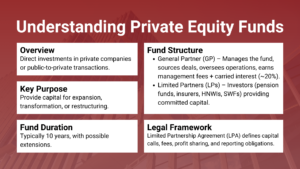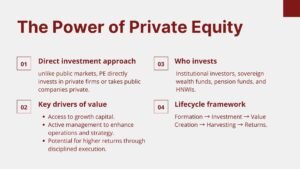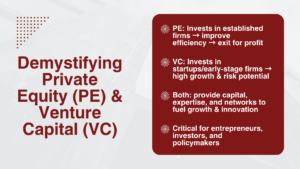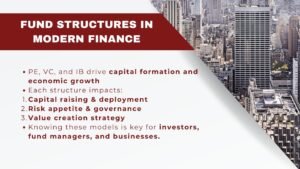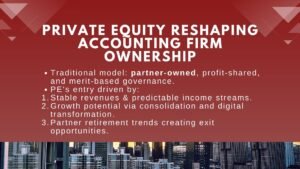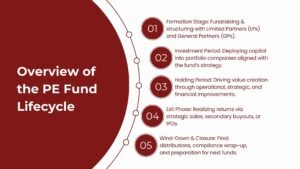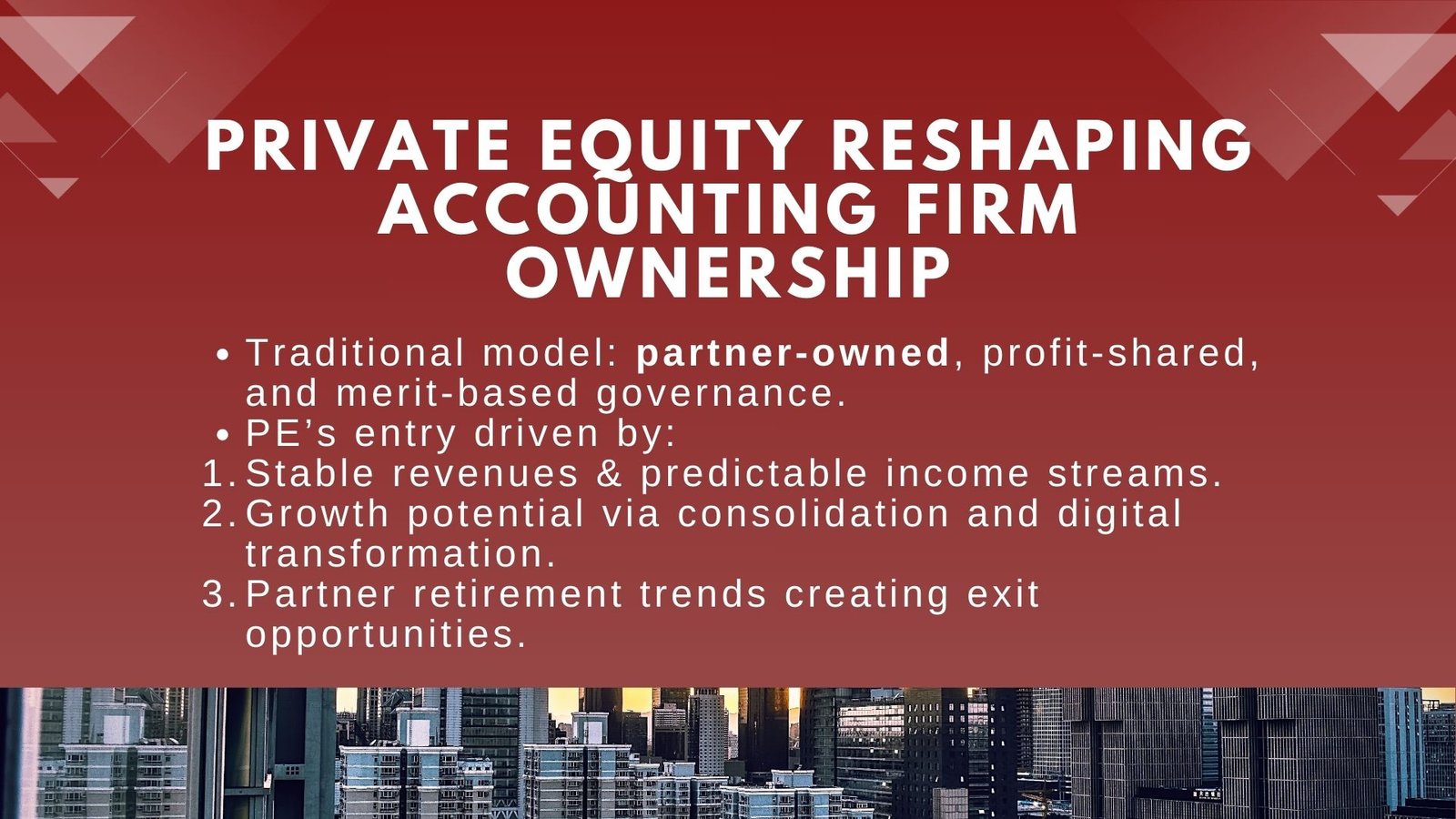
How Private Equity is Reshaping Accounting Firm Ownership
Learn How Private Equity is Reshaping Accounting Firm Ownership
Partnerships were traditional in the accounting industry, the ownership and profit shared, and the partners in a company operating on a merit system. This model strengthened the concept of stewardship, professional responsibility and strong reliance between the leadership of the firm and serving clients. Nevertheless, over the past few years, there is a newfound energy disrupting this established framework: the emergence of private equity (PE). The stability of revenues and the profitability of accounting firms has attracted investors to its firms which has resulted in a new culture of capital inflows compounding the one before bringing about the need to challenge usual ownership norms.
This change is not a financial one only, as it is changing the way accounting firms work, develop and fight in an even more difficult environment than before. The reasons behind the trend toward ownership of accounting firms by private equity groups affect the way the accounting firms should be analyzed, the risks that are connected to serving away the traditional partnership structure, and the opportunity that is offered and which comes with the ownership of the accounting firms by the private equity.
The Traditional Partnership Model and Its Limitations
Within decades, the partnership format was viewed as the gold standard of professional service-oriented businesses. Partners were not mere financial stakeholders since they actually participated in governance and strategies. The model encouraged accountability, incentives to retain clients and the development of a culture where ownership was earned after years of diligence.
Regardless of its strengths, the model had its own limitations as well. Expansion was limited by the capital contributions of partners and thus the firms could not widen their operations forcefully or invest highly in technological infrastructure. Another challenge was succession planning since firms were required to deal with the change in ownership and duties of existing partners who had decided to retire to new partners. Also, with the increased competitiveness in the world of global networks and technology-based companies, established alliances could not always afford to keep up with the rate of change in terms of innovation, and market demand.
This limitation opened a desirable playing field that was filled with the potential of private equity in providing not only capital but strategic know-how to make the accounting firms more nimble and growth-oriented enterprises.
Why Private Equity is Attracted to Accounting Firms
Accounting firms are attractive to the private equity firms due to various reasons. First, accounting services offer predictable and sustaining income levels since the demands of clients employing the services tend to remain constant each year, say in the tax compliance and audit services. This is because the earnings coming in will be easy to predict, thus making accounting firms have a lesser risk compared to volatile industries, a concept often discussed in an economic and accounting profit comparison course.
Second, the accounting sector holds a high potential of merging. This market is very fragmented as there are thousands of mid and small sized companies competing to the global Big Four. Private equity investors frame benefits in the purchasing and mating of firms to end up with larger competitive firms that have high market share and efficiency.
Third, enjoyment of strategic skill and privileged admission through networks due to private equity can help speed up development. This encompasses digitally transforming the business, growing service lines to advisory and consulting and greater operating efficiencies. Such approaches are often explored in a hands-on private equity masterclass Singapore. Through these resources, the accounting firms will benefit by scaling in a manner that would be hard in the traditional-based partnership approach.
Lastly, the trends in demography are of interest. Since a vast percentage of senior partners are retiring, the aspect of ensuring security in terms of finances and, at the same time, continuity within the firm makes private equity as an exit strategy attractive. Such convergence of needs has produced an ever-longer pipeline of transactions between accounting firms and private equity investors.
Impacts on Firm Ownership and Governance
The ownership of accounting firms by private equity shifts the governance structure in the basic way. As opposed to the situation of before where partners are the only owners, firms can now record the entry of external investors with large shares of equity in them. This brings new forces in decision-making where financial returns are now a more powerful force in the strategy.
Firms in turn tend to be under the PE ownership with comparable corporate styles of governance, in the form of boards of directors, performance benchmarks, and professional management teams. It may result in an increase in system discipline, more transparency of responsibility and more concentration on profits. In many companies, the capital provides the opportunity to improve their modernization efforts like modern data analytics, automation, and new digital platforms that not only make the company more efficient but also provides a better experience to the clients.
They are, however, not without concerns though. There is a fear in some quarters of professionals about the commitment of long-term client service and professionalism, being sacrificed to short-term financial results on the part of the external investors. One must also question whether PE ownership may destroy the on-going collegial and partner-oriented culture of the accounting profession. The need to satisfy investors? frenzy and professional commitments is thus a major challenge in this emerging ownership model.
Opportunities and Challenges for the Profession
The ownership of accounting firms by private equity shifts the governance structure in the basic way. As opposed to the situation of before where partners are the only owners, firms can now record the entry of external investors with large shares of equity in them. This brings new forces in decision-making where financial returns are now a more powerful force in the strategy.
Firms in turn tend to be under the PE ownership with comparable corporate styles of governance, in the form of boards of directors, performance benchmarks, and professional management teams. It may result in an increase in system discipline, more transparency of responsibility and more concentration on profits. In many companies, the capital provides the opportunity to improve their modernization efforts like modern data analytics, automation, and new digital platforms that not only make the company more efficient but also provides a better experience to the clients.
They are, however, not without concerns though. There is a fear in some quarters of professionals about the commitment of long-term client service and professionalism, being sacrificed to short-term financial results on the part of the external investors. One must also question whether PE ownership may destroy the on-going collegial and partner-oriented culture of the accounting profession. The need to satisfy investors? frenzy and professional commitments is thus a major challenge in this emerging ownership model.
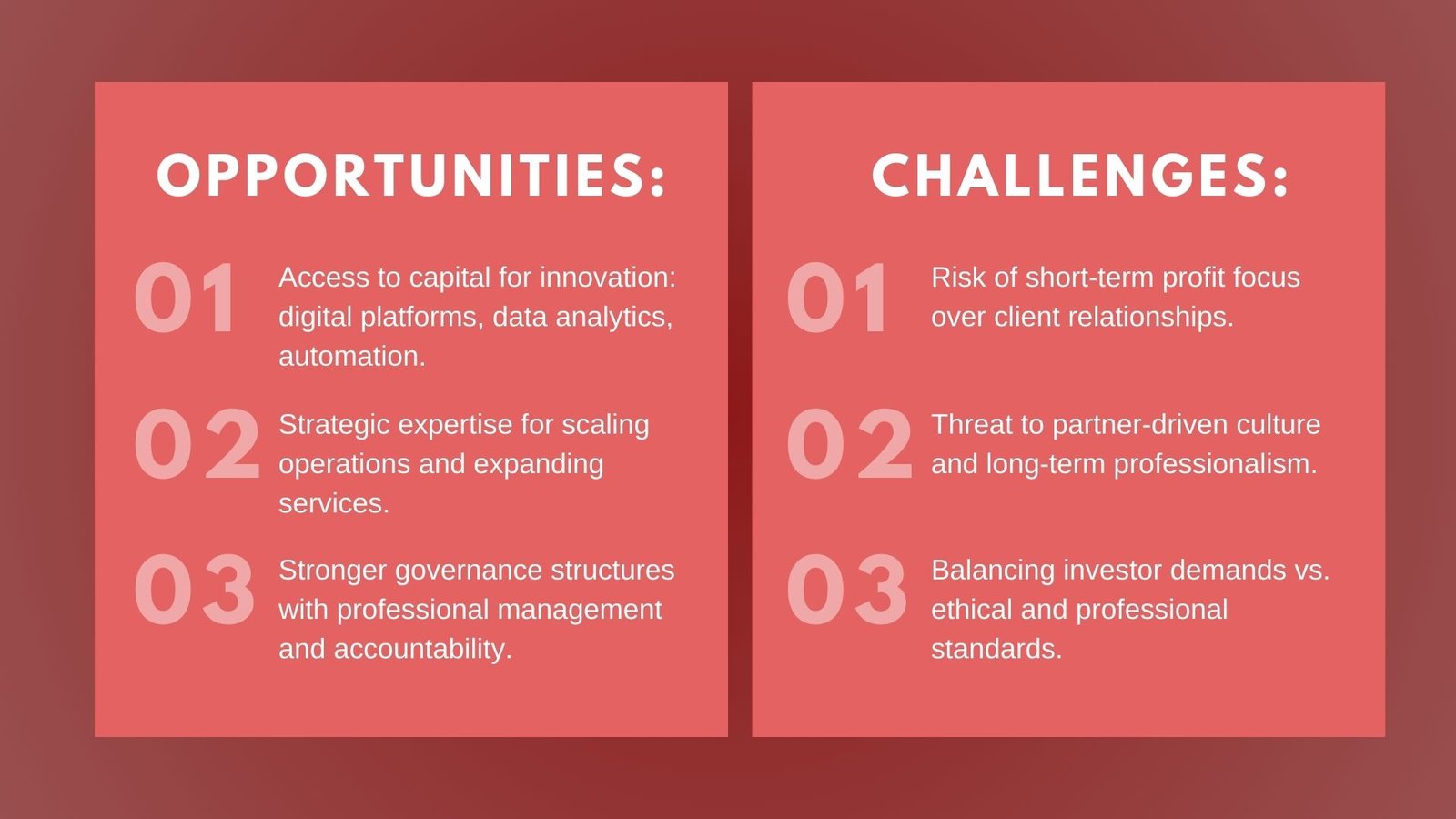
The Future of Private Equity in Accounting Firm Ownership
In the future, it is expected that private equity will continue to have strong implications in the remodeling of accounting firm ownership. With competition growing and client requirements more complex, external investment is becoming an increasingly attractive conduit to innovation and growth in the minds of firms. The so-called middle-size firms found it particularly necessary to be backed with PE in order to have a chance of rivalry with the sheer size and capacity of the Big Four.
Meanwhile, professional organisations and regulators will probably have more influence on determining the lines of acceptable ownership structure. This will be instrumental in upholding the trust in the industry, by ensuring that the involvement in PE does not in any way interfere with independence, ethics, or even professional standards.
In the end it will be the firms which enjoy the advantages of the capital and expertise and which retain the values that help define the accounting profession which will thrive under the PE ownership. It will be a challenge to find a way to satisfy investor expectation and also balance professional responsibilities to develop sustainable value to both the clients, employees and stakeholders.
Conclusion: A New Era for Accounting Firm Ownership
The introduction of private equity to accounting firms is creating a new dawn of ownership and governance of accounting practices and offers new opportunities of growth and innovation. Capital and expertise introduce the possibility of modernization of operations, increase of services and competitiveness. However, this change does not come without perils especially in the cases of ethics, culture, and ruling compliance.
The post-Industrial Revolution era of ownership in accounting firms will, therefore, be characterized by who will meet the challenge of achieving financial ambition while at the same time remaining accountable to a higher calling. When firms find that balance between price and quality they realise their ability to succeed in a competitive market, and keep that trust and credibility, which is the cornerstones of the accounting profession.



